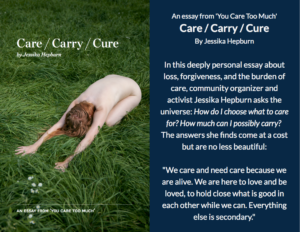a super special guest post by Laura Howard of Lupin Handmade
Chances are, if you’re selling your work or promoting your business online you’re probably using sites like Twitter and Facebook to connect with customers and clients and bloggers, and to keep in touch with your industry peers.
Social media is friendly, it’s personal, it’s about connections and relationships. All these things fit perfectly with the experience of buying direct from an artist/designer or indie business, which has the potential to be much more special than buying from a faceless corporation.
However, there are potential pitfalls too. Chatting online we’re all aware of things like privacy, personal safety, scammers and spammers… but chatting online as the face of your business you also need to remember that your social chatting reflects upon your business reputation. It’s important to stay professional, especially if you’re using your business name and you link to your Twitter/Facebook page from your website, or include the link in your email signature.
Professional doesn’t have to mean soulless! You don’t need to stop being you, or stop making those personal connections which make social media so wonderful… but there are a few things worth bearing in mind before you write that status update or publish that tweet.
Remember that what you type is public.
If you’ve got a public Facebook page for your business or your Twitter account isn’t “protected”, you might feel like you’re having a one-to-one conversation but what you share there is visible to the public at large and may also show up in search engines like Google. The same goes for public forums like the ones on Etsy.
There was recently a case here in the UK where a guy was arrested, taken to court and convicted for a joke he made on Twitter. This is a rather extreme example, but it’s important to remember that chatting on social media is not the same as just having a conversation even though it often feels that way.
Think before you complain.
Aside from the fact that constant negativity can be a bit of a downer and perhaps not what you’d want people to associate with your business, complaining on social media can have unforeseen consequences – mostly because it’s public. Just like all those people you read about getting fired for bitching about their job or their boss online, if you complain about difficult customers, clients, etc, it could seriously backfire if they stumble onto your comments.
One seller I knew was rejected from a new sales venue she’d just signed up with because of jokey comments her Etsy forum friends made about the name of the venue. She didn’t even join in with the comments, but the forum thread popped up in the venue’s visitor stats and they weren’t happy with what they found! Even if the people you’re complaining about never read what you wrote, plenty of potential customers will and they might get a bad impression of your business as a result. We all have customers and situations that drive us nuts, but sometimes it’s good to take a deep breath and think before you post.
One situation that’s sure to make you furious is when you discover a person or a company copying your work.
But no matter how angry you are, beware of publicly accusing someone of copying.
I’ve witnessed a lot of Twitter storms kick off over copying in the past few years – it’s a hugely emotional issue for the designers it happens to and for our creative community as a whole. You’re upset you got “ripped off”, your friends and customers are angry on your behalf, and as a result one upset tweet can go totally viral. This can sometimes be a good thing, as the power of the social media crowd can give power to a David ripped off by a big corporate Goliath (as in this recent example involving H&M).
But what if the person gets so upset and angry with you because of the way you’ve publically called them out that they become less willing to work with you to find a solution? What if you accuse someone of copying and it was just a coincidence? What if a company sues you for defamation? Generally you should try to get some good advice from friends and (if necessary) a lawyer and try to deal with the situation privately whenever possible.
A few more things to consider…
Some things – like your sex life or your kids toilet routines – may be a bit too personal to share with your customers. If your tweets are a bit TMI then you could be losing followers.
Similarly, if you’ve got strong political or religious views the Facebook page for your business might not be the best place to share them unless they’re connected to your business somehow, e.g. if you’re donating a percentage of your profits to a cause.
And finally, you might swear like a sailor in real life but you may want to moderate your language online, especially if you run a “family friendly” business or blog.
Finding the perfect balance between personal and professional can be tricky, and it will (of course) be slightly different for everyone. I’d love to hear your thoughts on this topic!
ABOUT THE AUTHOR
Laura Howard, a.k.a. Lupin, sells her handmade felt designs plus colourful craft supplies in her shop Lupin Handmade. She writes about her crafty universe and shares free tutorials on her blog, Bugs and Fishes. Her first book, Super-Cute Felt was published in 2011. You can also find her on Twitter and Facebook.



